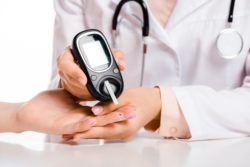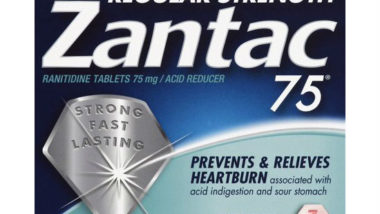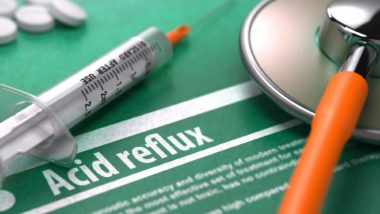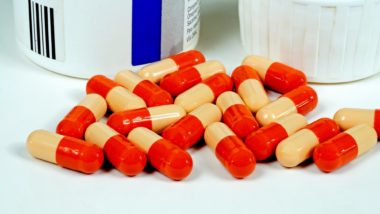Top Class Actions’s website and social media posts use affiliate links. If you make a purchase using such links, we may receive a commission, but it will not result in any additional charges to you. Please review our Affiliate Link Disclosure for more information.
According to a recent study, Nexium and other proton pump inhibitors may increase the likelihood of developing type-2 diabetes, in addition to probable associations between Nexium and stomach cancers.
Can Proton Pump Inhibitors Cause Type-2 Diabetes?
According to a study published in 2020 in the British Medical Journal Gut, people who regularly use proton pump inhibitors may be at a significantly higher risk of developing type-2 diabetes than people who do not take these drugs.
The study analyzed the health of more than 200,000 patients for around a decade, and found that long-term users who took PPIs regularly for more than two years were 24% more likely to be diagnosed with diabetes. The risk of developing the condition appears to be linked with the length of time spent taking the medications, with long term users at higher risk. Even patients with a healthy BMI and normal blood pressure may be more likely to develop the condition if they take PPIs.
As the study was only observational, it does not definitively prove that PPI use directly causes type-2 diabetes. However, the study’s authors have recommended that doctors use caution when prescribing the drug to patients in the future, especially if these patients are already at an increased risk for developing the condition.
What Are Proton Pump Inhibitors?
Proton pump inhibitors (PPIs) are a type of drug that work by decreasing the amount of acid in the stomach. They do this by blocking an enzyme in the stomach wall that produces acid. Although a normal amount of stomach acid is necessary to aid in food digestion and the destruction of microorganisms that could cause infections or illnesses, some people overproduce this acid. When this occurs, people may develop ulcers in the stomach or esophagus.
Proton pump inhibitors can help to manage the symptoms of ulcers by decreasing the levels of acid in the stomach, and may prevent new ulcers from being formed. The medication may also be taken by patients who suffer from gastroesophageal reflux disease (GERD) or Zollinger-Ellison syndrome, which can cause acid reflux and other uncomfortable side effects. In some cases, people who have been infected with Helicobacter pylori (H. pylori), a bacteria that lives in the digestive tract, may also take PPIs in combination with antibiotics to treat the infection.
PPIs are some of the most widely prescribed medications in the U.S., and are taken by millions of people. Popular brand name PPI drugs include Nexium, Prilosec, Prevacid, Protonix, and Zegerid. However, although these medications help many patients to manage their acid reflux, heartburn, ulcers, or other conditions, the side effects associated with them may be worse than the conditions they are meant to treat.
 About Type-2 Diabetes
About Type-2 Diabetes
Type-2 diabetes is the most common type of diabetes, and comprises approximately 90% of diabetes cases. The condition causes sugar to build up in the blood, rather than being absorbed into the body’s cells.
Type-2 diabetes can be life threatening if it is not managed, and may result in serious complications including impaired blood flow, vision damage, nerve damage, sores or blisters on the feet that may lead to amputation, or serious kidney damage.
Even if type-2 diabetes is diagnosed quickly and the patient develops a routine to manage the disease, it is a chronic condition that will likely affect them for the rest of their life.
If you have developed type-2 diabetes after taking proton pump inhibitors regularly for several years, you may benefit from speaking with an experienced attorney about the legal avenues available to you. Some victims of PPI-related diabetes may be able to join or file a class action lawsuit against the manufacturers of the drug and pursue compensation for medical expenses, pain and suffering, and other damages.
ATTORNEY ADVERTISING
Top Class Actions is a Proud Member of the American Bar Association
LEGAL INFORMATION IS NOT LEGAL ADVICE
Top Class Actions Legal Statement
©2008 – 2024 Top Class Actions® LLC
Various Trademarks held by their respective owners
This website is not intended for viewing or usage by European Union citizens.
Get Help – It’s Free
Join a Free Prilosec, Nexium Lawsuit Investigation
If you qualify, an attorney will contact you to discuss the details of your potential case at no charge to you.
PLEASE NOTE: If you want to participate in this investigation, it is imperative that you reply to the law firm if they call or email you. Failing to do so may result in you not getting signed up as a client or getting you dropped as a client.
E-mail any problems with this form to:
Questions@TopClassActions.com.
Oops! We could not locate your form.


 About Type-2 Diabetes
About Type-2 Diabetes










